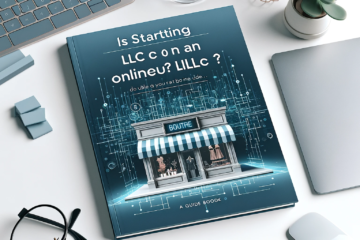If you’re ready to take your business consulting skills to the next level, starting an LLC could be the right move for you. With the benefits of limited liability and a professional image, an LLC can provide the foundation you need for success.
In this article, we’ll guide you through the process of choosing a business name, meeting legal requirements, and filing the necessary paperwork.
Get ready to manage and operate your LLC with confidence.
Choose a business name that accurately reflects expertise and services provided. Understand the benefits of an LLC, such as limited liability protection and potential tax savings. Meet the legal requirements for forming an LLC, including filing necessary paperwork and complying with state regulations. Manage and operate your LLC by hiring qualified employees, developing effective marketing strategies, and regularly evaluating and adjusting them for maximum impact.
Choosing a Business Name
When starting your LLC for business consulting, begin by carefully selecting a name that accurately reflects your expertise and the services you provide. The name of your business is crucial as it will serve as the foundation for your brand identity. It should convey professionalism, competence, and creativity to attract potential clients.
In the competitive world of business consulting, creative branding techniques are essential to differentiate yourself from the competition. Your business name shouldn’t only be memorable, but also convey the unique value you offer to clients. Consider incorporating words that reflect your industry expertise, such as ‘Strategic Solutions’ or ‘Innovative Insights.’ This will help potential clients understand what sets you apart and why they should choose your services.
In addition to creative branding techniques, the importance of domain name selection can’t be overstated. Your domain name is your online address and plays a crucial role in establishing credibility and visibility in the digital realm. It should be easy to spell, relevant to your business, and preferably include keywords that reflect your consulting services. A domain name that aligns with your business name creates a consistent and professional online presence.
Understanding the Benefits of an LLC
To fully understand the benefits of an LLC for your business consulting venture, it’s important to consider the advantages it offers in terms of liability protection and tax flexibility.
One of the main benefits of forming an LLC is the limited liability protection it provides. As an LLC owner, your personal assets are separate from the company’s liabilities. This means that if the business incurs debts or legal issues, your personal assets, such as your home or savings, are protected. This can give you peace of mind and allow you to take more risks in your consulting business without the fear of losing everything.
Another advantage of an LLC is the tax flexibility it offers. By default, an LLC is considered a pass-through entity for tax purposes. This means that the business itself doesn’t pay taxes, but rather the profits and losses flow through to the individual owners, who report them on their personal tax returns. This can result in potential tax savings, as the owners can take advantage of certain deductions and credits that may not be available to other business structures. Additionally, an LLC can choose to be taxed as a corporation if it’s more beneficial for the business.
Meeting the Legal Requirements
To meet the legal requirements for starting an LLC for your business consulting venture, you must file the necessary paperwork with the appropriate state agency. Understanding the tax implications and ensuring compliance with state regulations are essential aspects of this process.
When it comes to taxes, forming an LLC can offer certain advantages. By default, an LLC is considered a pass-through entity, meaning that the profits and losses of the business are passed through to the owners’ personal tax returns. This allows for the avoidance of double taxation that’s often associated with corporations. However, it’s important to consult with a tax professional to fully understand the specific tax implications for your business and to ensure compliance with all tax laws.
In addition to tax considerations, ensuring compliance with state regulations is crucial. Each state has its own set of rules and regulations governing the formation and operation of an LLC. These regulations can include requirements for filing articles of organization, appointing a registered agent, and paying annual fees. It’s important to thoroughly research and understand the specific requirements in your state to avoid any legal complications down the line.
Filing the Necessary Paperwork
To ensure compliance with state regulations and legally establish your LLC for business consulting, you’ll need to file the necessary paperwork with the appropriate state agency. This step is crucial in solidifying your business structure and protecting your personal assets. While you can certainly attempt to navigate the paperwork on your own, hiring a professional service can save you time, effort, and potential mistakes.
When it comes to filing the necessary paperwork, there are a few common mistakes to avoid. First, make sure you choose an appropriate business name that isn’t already in use and complies with state regulations. Additionally, accurately completing the Articles of Organization is crucial, as any errors or omissions could lead to delays or rejection. It’s also important to carefully consider and select the appropriate tax classification for your LLC, as this decision can have significant implications for your business. Lastly, ensure that you have obtained all required licenses and permits for your consulting practice, as operating without them can result in fines or other legal consequences.
Managing and Operating Your LLC
Once you have successfully filed the necessary paperwork, you can begin managing and operating your LLC for business consulting. One of the key aspects of managing your LLC is hiring employees. As your business grows, you may find it necessary to bring on additional staff to handle the workload. When hiring employees, it’s important to carefully consider their qualifications and fit with your company culture. Look for individuals who’ve expertise in the areas relevant to your consulting business and who align with your values and goals.
Additionally, developing effective marketing strategies is crucial for the success of your LLC. Take the time to identify your target market and create a comprehensive marketing plan that includes both online and offline tactics. Utilize social media platforms, attend industry events, and leverage your professional network to promote your services and attract clients. Regularly evaluate the performance of your marketing strategies and make adjustments as needed to ensure maximum impact.
Conclusion
In conclusion, starting an LLC for business consulting can provide numerous benefits and ensure legal compliance. By carefully selecting a business name, understanding the advantages of an LLC, meeting legal requirements, filing necessary paperwork, and effectively managing and operating your LLC, you can establish a solid foundation for your consulting business. This strategic approach will help you navigate the complexities of entrepreneurship and position your business for long-term success.
Frequently Asked Questions
What Are the Typical Costs Associated With Starting an LLC for Business Consulting?
The typical costs associated with starting an LLC for business consulting include a cost breakdown of registration fees, legal fees, and ongoing expenses. It is important to conduct thorough financial planning before embarking on this venture.
Can I Start an LLC for Business Consulting if I Have No Prior Experience in the Consulting Industry?
Yes, you can start an LLC for business consulting without prior experience in the industry. However, be prepared for challenges in the consulting industry and consider the starting costs for an LLC.
Are There Any Specific Licenses or Certifications Required to Operate an LLC for Business Consulting?
There are specific licenses and certifications required to operate an LLC for business consulting. It is important to research and obtain the necessary credentials to ensure compliance with legal requirements in the industry.
How Do I Protect My Personal Assets From Potential Liabilities as an LLC for Business Consulting?
To protect your personal assets from potential legal liabilities as an LLC for business consulting, it is crucial to separate your personal and business finances, maintain adequate insurance coverage, and adhere to all legal and regulatory requirements.
What Are Some Common Challenges That New LLCs for Business Consulting May Face and How Can They Be Overcome?
To overcome common challenges in starting an LLC for business consulting, focus on building a strong client base. Analyze the market, develop a strategic marketing plan, and provide exceptional service to attract and retain clients.
This article is created with the aid of automated technology and then carefully reviewed and verified for accuracy by our professional editors.








